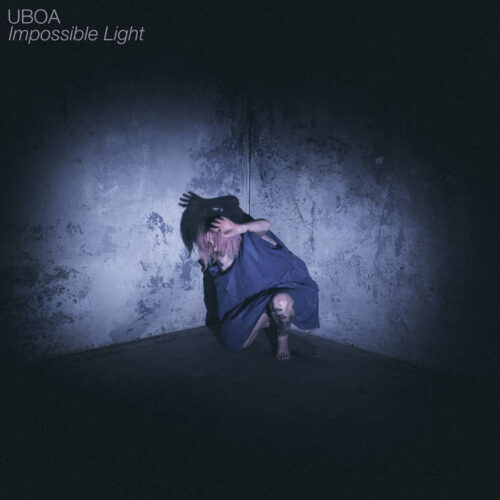Since the release of The Origin of My Depression in 2019, Xandra Metcalfe has made an exponential name for herself with her extreme yet utterly personal noise. In contrast to the genre’s classics, which tend to evolve through shades of black and produce dehumanized albums (Merzbow comes to mind here!), Uboa exudes emotion and sensitivity. This is music that knows how to be noisy and brutal, but also very melodic and catchy. A breath of fresh air in the landscape of inaccessible music.
It’s been said that Impossible Light, Uboa’s first full-length album in five years, was initially conceived in continuity with its predecessor. It is also said that this album almost never saw the light of day. On the one hand, the patched-up aspect of an album that was hard to finish comes across very well. The tracks evolve with a much less obvious sense of macrostructure, like relatively stagnant layers of sound merging into one another, from which various surprise elements emerge. Out of the gentle chaos come long industrial passages, not far removed from the project’s metal roots, and explosions of glitch and screeching distress. In a piece like ‘Endoctrine Disruptor’, a melodic cell develops over heavy drums and plaintive vocals. This moment exemplifies the occasional passages of light and hope. There are also vocal collaborations with Lane Shi Otay, Charlie Looker and Haela Ravenna Hunt-Hendrix (from Liturgy), all concentrated in the final track ‘Impossible Light / Golden Flower’. Otay’s mandarin-sung lyrics, which dominate the track, certainly add an interesting and novel color to the album. The 10-minute track also demonstrates the epic proportions that Uboa’s music can take on.
A worthy sequel to The Origin of My Depression? A matter of taste, I suppose. Critics have so far been very favorable to Impossible Light, even calling it Uboa’s best album to date. Yet it’s an opus that feels disjointed, peppered with moments where the pieces seem to go nowhere. The microediting and sound design always offer something interesting to the attentive ear, but the narrative arc that justifies the assembly of all these ideas is muddled and confused. The album remains a very welcome addition to the discography of this unique project. However, Metcalfe’s mastery of tension and resolve is not as satisfying as it could be.
























